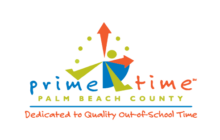9:00 am - 12:00 pm
Over the last 5 years, Prime Time has helped the JASE program become a successful afterschool program in Martin County. We are thankful for the variety of trainings offered, yearly actions plans and multiple site visits.
Afterschool ProfessionalMartin County Parks and Recreation
VIRTUAL: Teens and the Family Connection Series
Length of Training: Two-part series, 3 hours each
01/12/2023 9:00-12:00
01/26/2023 9:00-12:00
Participants are REQUIRED TO ATTEND ALL TRAININGS in the series and create and try out tailored activities in between trainings.
Today’s families are busier than ever before. The demands of modern life can make it difficult for parents to stay fully involved in their children’s education. Yet, studies have shown that parent involvement is one of the biggest predictors of student success. Family engagement has a life-long impact on the lives of youth and is a critical part of any effort to engage and empower teens. So how can you increase connection with families and involve them more fully in their children’s efforts in your out-of-school time program? This powerful training series provides the answer. While exploring the challenges of raising a family in modern society, you will learn how to improve your connection with families and increase their involvement with their teens and your program. You will also gain key principles and strategies to help you build a strong platform for effective family engagement.
Please note: Only afterschool practitioners working with middle school youth should register for this training.
Upon successful completion of this training series and follow-up assignment(s), the participant will earn 8 clock hours (.8 CEUs) of training.
Teens and the Family Connection: Building Blocks
Training Objectives
Participants will:
- Describe the social factors and family demands that make maintaining contact with parents a challenge.
- Identify the five building blocks of strong family involvement.
Teens and the Family Connection: Strong Partnerships
Training Objectives
Participants will:
- Implement the five essential elements of strong developmental relationships.
- Discuss the six shifts of approach which improve efforts to partner with families.
- Identify practices for supporting and empowering teens.
Core Competencies Addressed
Core Knowledge Area – Community and Family Relationships
- B1: Establish frequent contact with parents through a variety of communication strategies – Level 2
- C2: Communicate with families about program curriculum, learning goals and activities – Level 2
- C4: Look for opportunities to involve families in learning activities – Level 2
- C6: Work cooperatively with families on mutually agreed upon practices (e.g., homework, behavior guidance) – Level 2
PQA SEL Items Addressed
PBC PQA Scale – I-E Creating Safe Spaces
I.E.1: Foster positive emotional climate
I.E.2: Convey warmth and respect
PBC PQA Scale – II-I Fostering Growth Mindset
II.I.3: Attribute achievement to effort
PBC PQA Scale – III-N Cultivating Empathy
III.N.1: Structure activity for sharing and listening
III.N.4: Support valuing of differences

